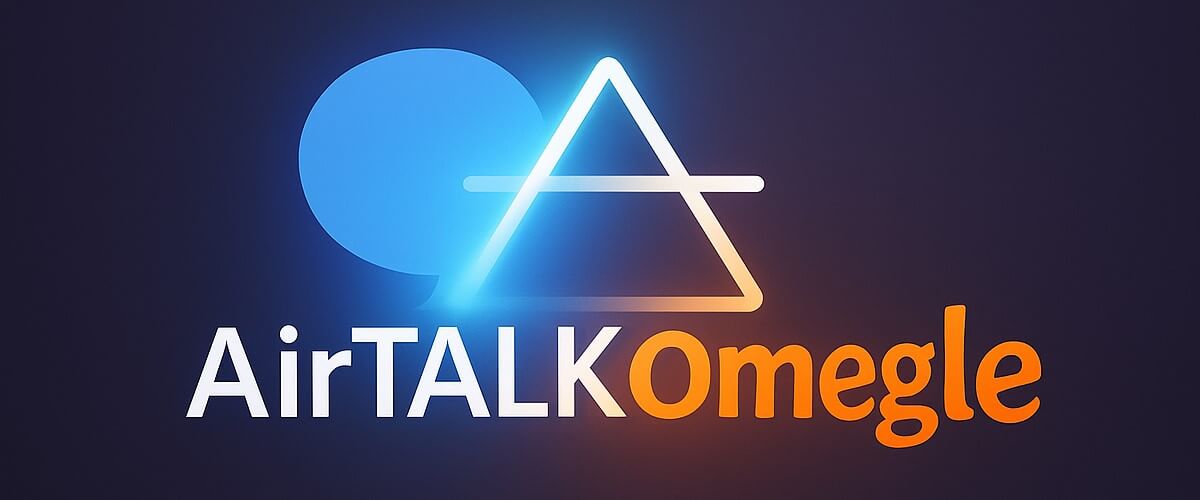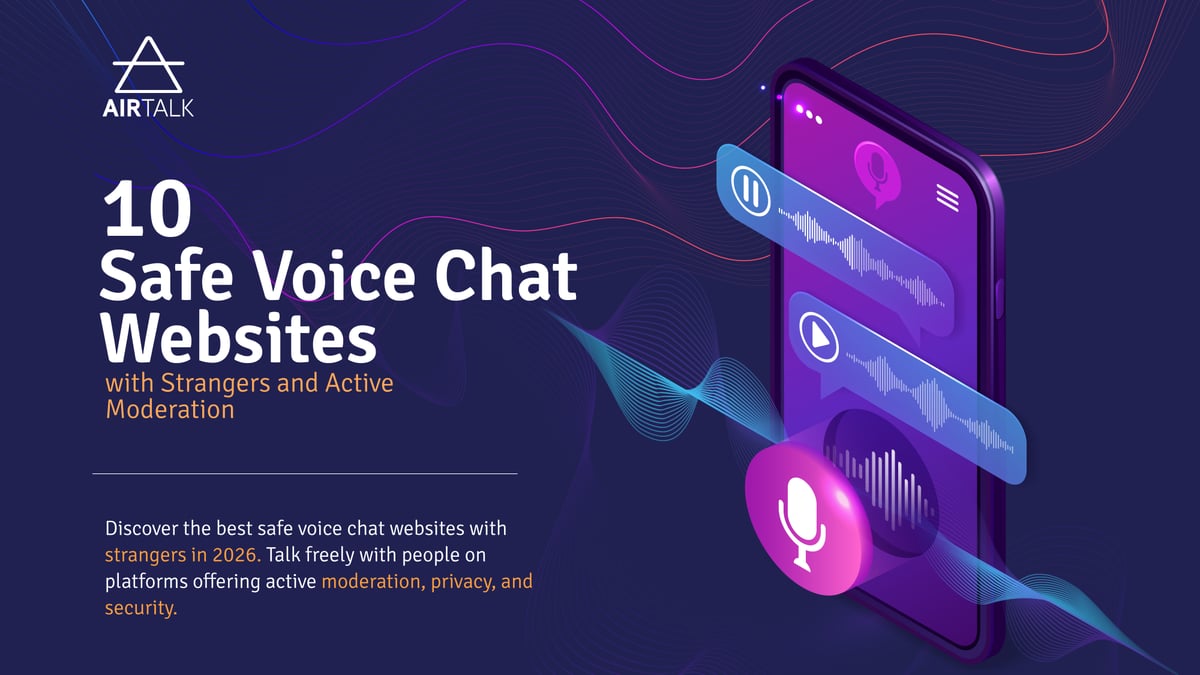Why Did Omegle Shut Down? Real Reason Behind It
For over a decade, Omegle stood as the internet’s most iconic anonymous video chat platform. From its rise as a digital novelty in 2009 to its role in millions of viral YouTube videos, the name Omegle became synonymous with online strangers, spontaneous conversation, and yes, internet weirdness. But in late 2023, everything changed.
Omegle shut down permanently.
No prior warning. No phased shutdown. Just a final, heartfelt message from its creator and then—silence.
So, why did Omegle shut down after 14 years online? What legal, social, and ethical pressures made its end inevitable? And what are the best Omegle alternatives in 2025?
This article covers the full truth behind Omegle’s shutdown—from the explosive lawsuit to the cultural loss—and offers you trusted, modern alternatives for anonymous online conversation.
What Was Omegle? A Quick Recap
Omegle launched in March 2009, created by an 18-year-old developer named Leif K-Brooks. Its purpose was simple but revolutionary at the time:
“Talk to strangers.” That’s it.
No registration, no profile, no usernames—just you and a complete stranger matched for a text or video chat. Within months, Omegle had millions of users. By the early 2010s, it became a cultural icon, especially popular among teenagers, YouTubers, meme creators, and social experimenters.
Unlike Facebook or Instagram, Omegle didn’t require an identity. And that anonymity was both its biggest selling point—and its greatest flaw.
Why Did Omegle Shut Down?
The platform officially shut down on November 8, 2023, following a public farewell message by its founder, Leif K-Brooks. In his official statement, Brooks cited the core reason behind the closure:
“Running Omegle is no longer sustainable—financially nor psychologically.”
— Leif K-Brooks, via official farewell post
The message marked the end of an era, as the once-popular random chat service closed its doors permanently.
Let’s break down the three major reasons that led to Omegle’s shutdown.
1. Escalating Abuse and Misuse
As Omegle’s user base grew, so did the darker side of anonymous chatting:
- Exploitation of minors
- Sexual misconduct
- Hate speech and racism
- Live-streamed harassment
- Dangerous stunts for views
Despite implementing AI moderation and human monitoring, the platform failed to prevent disturbing and sometimes illegal activity. Predators used Omegle’s anonymity as a hunting ground. And that led directly to real-world harm.
In 2022 alone, Omegle was mentioned in over 600,000 reports made to the National Center for Missing & Exploited Children (NCMEC). That’s more than most major platforms aside from Facebook and Google.
2. Legal Pressure and Lawsuits
The final nail in the coffin came in the form of a massive lawsuit.
In 2021, a woman identified as A.M. filed a suit against Omegle, claiming she was sexually abused on the platform at age 11. She met her abuser through Omegle’s random chat feature.
The federal judge ruled that Omegle’s algorithmic design was partially responsible for pairing her with the predator—essentially saying the platform enabled the abuse. This stripped Omegle of its Section 230 immunity, which usually protects tech companies from user-created content.
To settle the case, Omegle agreed to permanently shut down the service.
This case became a precedent-setting legal moment and highlighted the dangers of unmoderated anonymity in platforms.
3. Mental and Emotional Toll on the Founder
In his farewell note, Brooks admitted the emotional weight of running Omegle for so many years. After 14 years of managing the platform while facing lawsuits and mounting criticism, he acknowledged it had become
“no longer sustainable, financially nor psychologically”.
He also reflected on how his idealistic vision had been overshadowed by darker uses of the site. As NPR summarized, Brooks wrote:
“There can be no honest accounting of Omegle without acknowledging that some people misused it, including to commit unspeakably heinous crimes.”
The constant accusations, legal exposure, and personal guilt were simply too much—ultimately outweighing his original purpose for the platform.
The Cultural Impact of Omegle’s Shutdown
Omegle wasn’t just a website—it was a digital subculture. For Gen Z and younger millennials, Omegle was a rite of passage:
- Finding people across the world
- Meeting future best friends or strangers who’d share life advice
- Livestreaming with weird filters and reactions
- Getting surprised by a celebrity using it anonymously
- Even discovering romance or heartbreak
For many YouTubers, Omegle was the heart of their content strategy. Famous creators like PewDiePie, Jacksepticeye, and others frequently used it to prank strangers or hold random Q&A sessions.
Now, that entire content genre is gone.
Did the Shutdown Help or Hurt?
Shutting down Omegle helped in the sense that one major platform for exploitation was removed. But the vacuum it created also led to dozens of new platforms trying to copy its model, many of which are even less secure and moderated.
Some platforms make big promises about safety, but without regulation, the same issues can easily repeat.
So, for users who love the concept but want safe, anonymous interactions, what’s the solution?
Best Omegle Alternatives You Can Use Today
Here are the top Omegle replacements that still offer the thrill of talking to strangers—with better safety, user control, and updated features.
1. Airtalk.live – Best for Safe Voice & Image Chat
If you're looking for a modern alternative to Omegle that puts safety first, Airtalk.live is an excellent choice.
- Anonymous voice and image chat
- No registration required
- AI-powered moderation and user reporting
- Global matchmaking
- Clean, fast, mobile-friendly UI
Airtalk.live keeps the freedom of Omegle, but adds the protection Omegle lacked. It’s ideal for users who enjoy real conversations without exposing personal data.
2. Chatroulette – A Classic Reimagined
The original Omegle rival is still going strong.
- Random video chat
- Built-in moderation filters
- Active global user base
- Now includes matching by interests
Chatroulette has matured over the years and now places a stronger emphasis on clean content and user safety.
3. Emerald Chat – For Clean, Account-Based Matching
Emerald is built with safety and smart matching in mind.
- Requires account creation
- Matches users based on shared interests
- Offers group chat, 1-on-1, and Q&A rooms
- Includes reputation scores to filter trolls
Ideal for users looking for a more structured and respectful experience.
4. Shagle – For Instant Video Chat with Filters
Shagle is like Omegle with a more polished design.
- Instant global video access
- Gender and location filters
- Premium option for added control
Not as strict on moderation, but better than older clones.
5. Chatspin – Great for Mobile and Quick Access
If you’re using a smartphone, Chatspin is worth trying.
- Works smoothly on iOS and Android
- Face masks and filters add fun
- Random chat with optional login
How to Stay Safe While Using Omegle Alternatives
Whether you’re using Airtalk.live or any similar site, safety should be your priority. Here’s how to protect yourself:
- Never share personal information (name, address, school)
- Use platforms with moderation systems
- Avoid clicking unknown links
- Block/report abusive users immediately
- Use a VPN for extra protection
- Log out or close browser when done
Final Thoughts: Why Omegle Shut Down—and What’s Next
So, why did Omegle shut down?
It was a storm of factors: unchecked abuse, legal battles, emotional burnout, and the evolving landscape of digital responsibility. It marked the end of an era—but also a warning sign for how internet platforms must evolve.
In 2025, users no longer accept “anonymous but dangerous” as a trade-off. They want meaningful, spontaneous conversations—without the risk.
And that’s why Omegle alternatives like Airtalk.live are stepping up. With safer tools, cleaner design, and the same thrill of surprise interaction, they’re building what Omegle never could: a responsible future for anonymous online chatting.
Frequently Asked Questions (FAQ)
1. Why did Omegle shut down in 2023?
Omegle shut down due to legal pressure from lawsuits, rising reports of abuse, and the emotional toll on its founder. A massive lawsuit settlement required the platform to shut down permanently.
2. Is there a chance Omegle will return?
No. The shutdown was part of a legal settlement, and the founder has made it clear he does not intend to relaunch the platform.
3. What is the best Omegle alternative?
Airtalk.live is currently the most promising Omegle alternative. It offers voice and image chat anonymously with stronger safety features and moderation.
4. Was Omegle illegal?
No, but it became a breeding ground for illegal activity. It wasn’t the platform itself that was illegal, but how it was used by many of its users.
5. How can I stay safe while chatting online?
Use platforms with proper moderation, avoid sharing personal data, use a VPN, and always report abusive behavior immediately.



